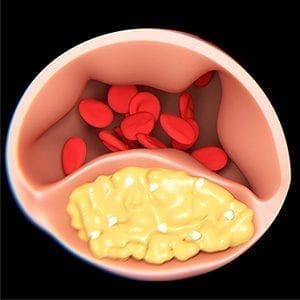High levels of cholesterol can be a risk factor for Alzheimer’s disease. An enzyme called ACAT in the cholesterol pathway can increase production of amyloid beta, an important component in the buildup of plaque bundles that are part of the Alzheimer’s pathology. In 2013, Dora Kovacs, Ph.D. at Massachusetts General Hospital identified a mechanism of action called “palmitoylation” that accounts for the relationship between ACAT and increased toxic amyloid production. Kovacs’ team then moved to test two existing drugs, inhibitors of the ACAT enzyme, for their effectiveness against Alzheimer’s.





